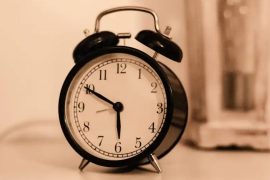The findings from the large Norwegian study, as described, highlight a potential link between energy drink consumption and poor sleep quality among college students. Here are some key points from the study:
- Frequency of Consumption and Sleep Duration: The study suggests that higher frequency of energy drink consumption is associated with fewer hours of nightly sleep among college students. Even occasional consumption (1-3 times a month) is linked to a heightened risk of disturbed sleep.
- Caffeine Content and Other Ingredients: Energy drinks, which are popular among college students, typically contain an average caffeine content of 150 mg per liter, along with sugar, vitamins, minerals, and amino acids. The study does not specify the exact quantities consumed or the timing of consumption.
- Sleep Patterns and Insomnia: The research explores various aspects of sleep patterns, including bedtime, wake-up time, sleep latency, wakefulness after falling asleep, and sleep efficiency. Insomnia, defined as difficulties falling and staying asleep, along with daytime sleepiness and tiredness, was more common among daily energy drink consumers.
- Sex Differences in Energy Drink Consumption: Women were more likely than men to report never or seldom consuming energy drinks. Both men and women who reported daily consumption slept around half an hour less than those reporting occasional or no consumption.
- Dose-Response Association: There is a dose-response association between energy drink consumption and various aspects of sleep, including shorter sleep duration, increased wakefulness after falling asleep, and longer sleep latency.
- Risk of Sleep Problems: Higher energy drink consumption was associated with an increasing risk of sleep problems across all aspects studied, with the strongest associations for short sleep duration.
- Observational Nature of the Study: The study is observational, and no firm conclusions can be drawn about causation. Reverse causality is acknowledged as a possibility, where poor sleep could lead to increased energy drink consumption.
- Limitations: Lack of information on the timing and exact quantities of energy drink consumption. Reliance on self-assessment rather than objective measures for both consumption and sleep patterns.
In summary, while the study provides valuable insights into the potential association between energy drink consumption and poor sleep quality among college students, more research is needed to establish causation and understand the underlying mechanisms. Additionally, addressing the limitations mentioned, such as obtaining more detailed information on consumption patterns, could contribute to a more comprehensive understanding of this relationship.
The researchers conclude: “The results from the current study show that there is a robust association between the frequency of [energy drink] consumption and the different sleep parameters.”
“Identifying modifiable risk factors for sleep problems among college and university students is vital and our results suggest that the frequency of …consumption could be a possible target for interventions.”
Disclaimer:
The information contained in this article is for educational and informational purposes only and is not intended as a health advice. We would ask you to consult a qualified professional or medical expert to gain additional knowledge before you choose to consume any product or perform any exercise.







